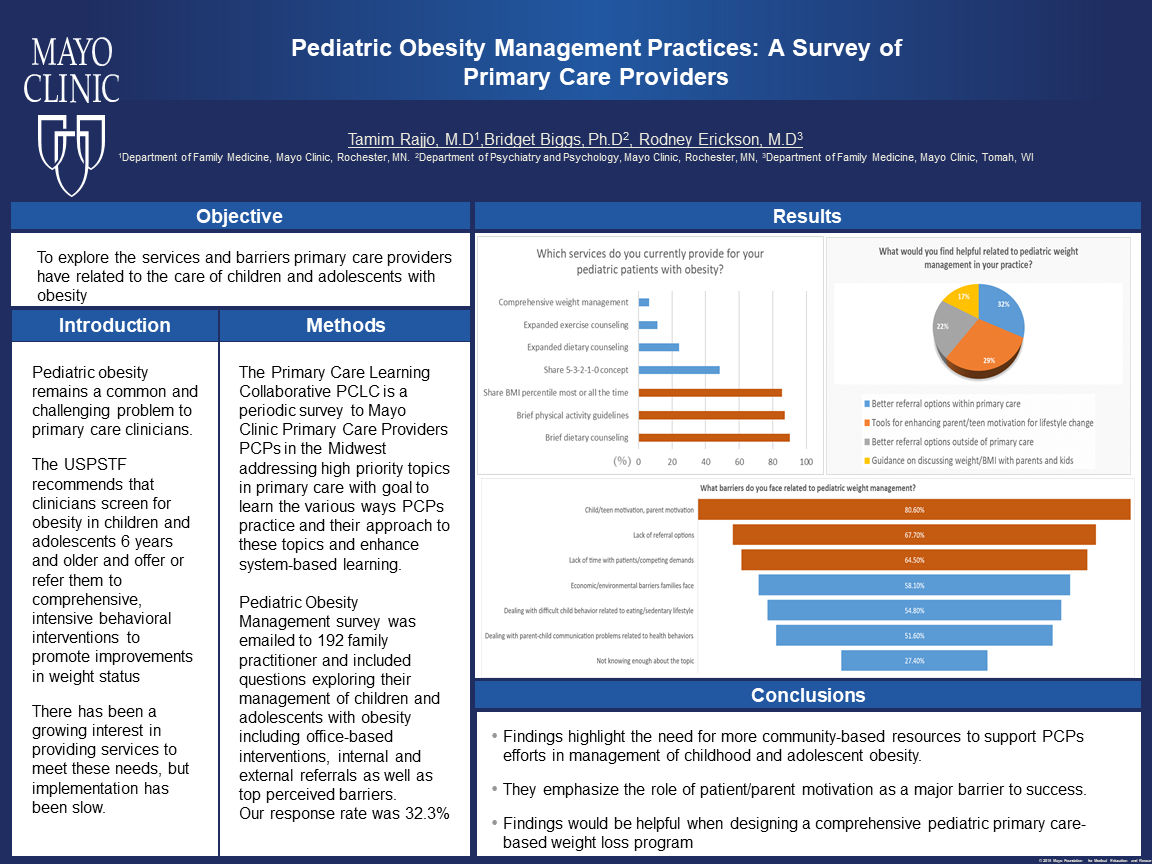PCR050: Pediatric Obesity Management Practices: A Survey of Primary Care Providers
Tamim Rajjo, MD, MPH, MD. MPH; Rodney Erickson, MD; Bridget Biggs, PhD, LP, ABPP
Abstract
Objective: This survey studies the services and barriers primary care providers have related to the care of children and adolescents with obesity. Results: We sent a survey to 192 family physicians and pediatricians in the Mayo Clinic Midwest practice and 62 (32.3%) responded. The vast majority of responders pay special attention to weight status during their encounters by sharing BMI information with parents (85%), providing brief dietary counseling (90%) and briefly discussing physical activity guidelines (87.1%). Less than half would provide expanded counseling or detailed concepts like the 5-2-1-0. Most responders had access to advanced dietary services (77%), but not exercise (6.5%) or behavioral modification (19.4%) programs. Less than 20% had access to community-based dietary, exercise or comprehensive lifestyle programs. Lack of patient/parent motivation (80.6%) and lack of referral options (67.7%) were top barriers to management. An Easy-to-find Electronic Medical Record order was identified as most helpful in educating and referring patients to obesity management services (80.6%).
Conclusions: Although these findings do align with most of the current literature, they highlight the need for more community-based resources to support primary care providers efforts in management of childhood and adolescent obesity. They also emphasize the role of patient/parent motivation as a major barrier to success and would be helpful when designing a comprehensive primary care based weight loss program for this population.

Jack Westfall
jwestfall@aafp.org 11/20/2021such an important topic. hope this work continues. nice work. thanks